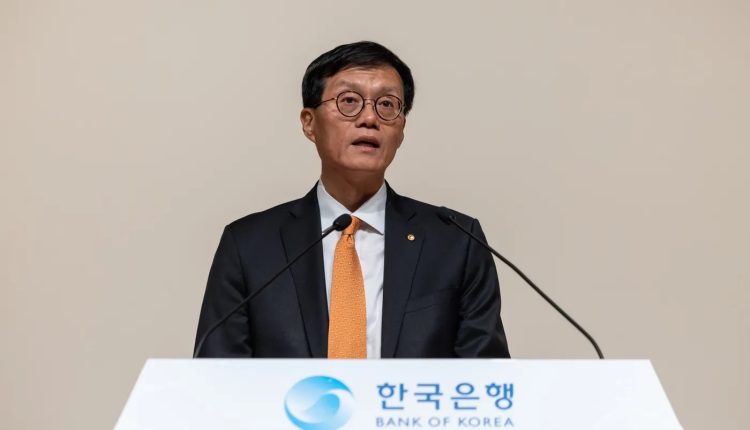BOK chief: Impeachment politics unlikely to impact South Korea’s economic outlook
Bank of Korea (BOK) Governor Rhee Chang-yong said on Thursday that the ongoing political turmoil over the opposition’s impeachment push against President Yoon Suk Yeol is unlikely to affect South Korea’s sovereign ratings or long-term economic growth, given the country’s strong market fundamentals.
Rhee made these comments during a press briefing in Seoul, two days after President Yoon’s unexpected martial law declaration, which was swiftly rescinded after the National Assembly voted to reject it. Following the event, the opposition filed an impeachment motion against the president.
“The Korean won weakened due to the negative news. But it is forecast to gradually rise if there are no new shocks,” Rhee stated.
In the aftermath of the brief martial law episode, the won fell to a two-year low on Wednesday, and the stock market saw significant losses due to heavy foreign selling. However, Rhee reassured that markets have since stabilised, and he does not foresee lasting economic impacts from the political events.
“The martial law declaration was purely out of political reasons. We can separate such political events from economic dynamics,” the central bank governor said, stressing that the economic fundamentals are not linked to politics.
Rhee also downplayed concerns that the impeachment process might trigger further market volatility, noting that while it introduces some uncertainty, history suggests it is unlikely to lead to a significant economic shock.
The BOK governor made it clear that the central bank would not base its policy decisions or growth outlook adjustments on the current political situation. “I think this is more about psychology. I’ve received a lot of questions and messages from many foreign investors, institutions and friends.”
“As the issue appears to have sent a great shockwave to them, I am trying to fully explain the situation while maintaining close communication with them,” he added.
Rhee pointed out that the swift political response following the martial law declaration demonstrated South Korea’s mature democracy and adherence to a rules-based order.
In response to recent market instability, the government has committed to providing “unlimited liquidity” until stability is restored, with the Bank of Korea already initiating repo operations for financial institutions.
Last week, the BOK implemented an unexpected back-to-back policy rate cut, citing concerns over slowing export growth and uncertainty surrounding policy changes under the new U.S. administration. The central bank also revised its growth forecast for this year to 2.2 per cent from 2.4 per cent, and for next year, it was lowered by 0.2 percentage points to 1.9 per cent.
Attribution: Yonhap


